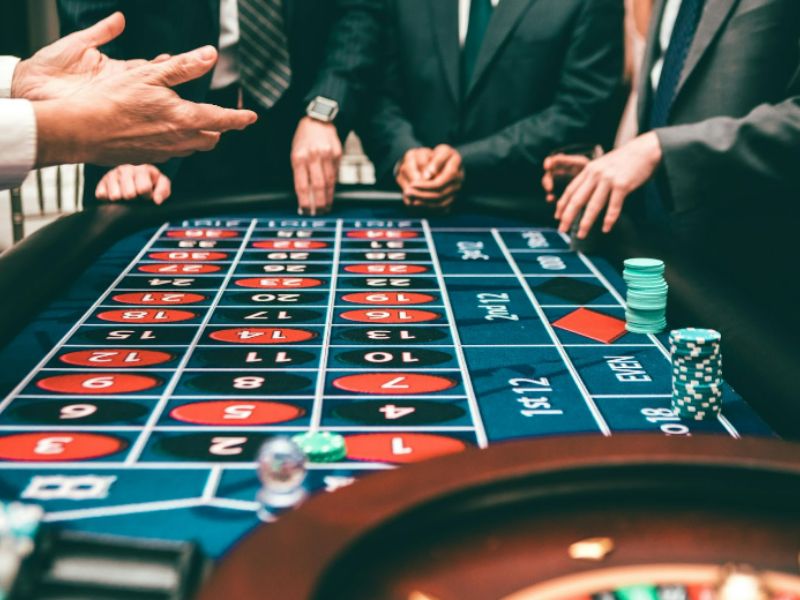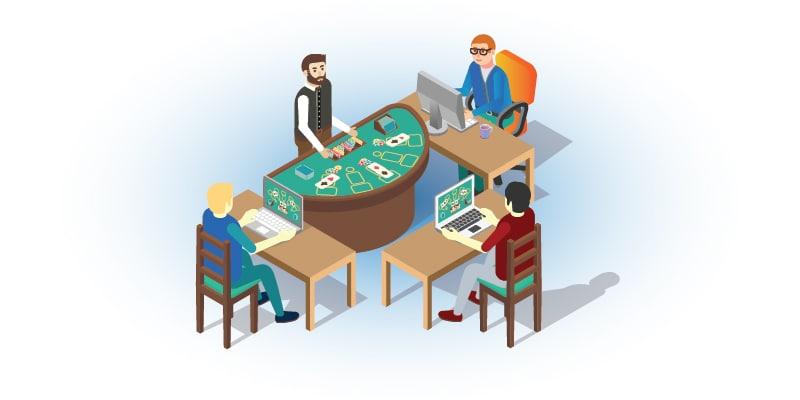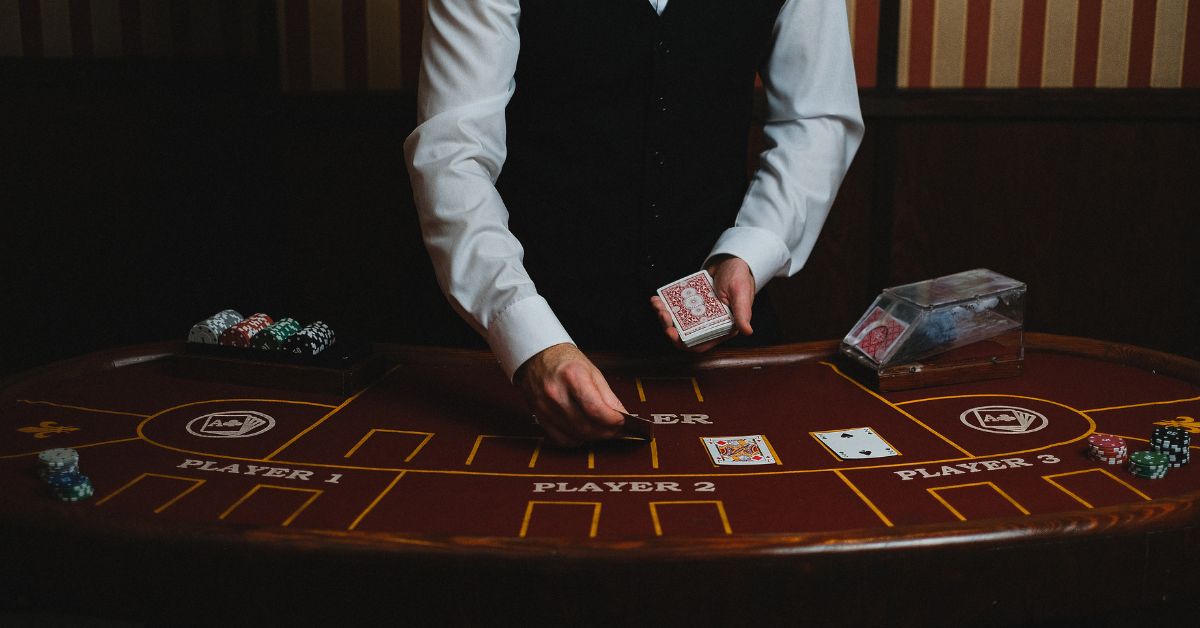The Ultimate Guide to Help You Bluff Like a Pro
Anyone who has played poker will understand the importance of the bluff, but it is more than simply faking a good hand. Understanding the subtleties behind a successful bluff, and working on your acting skills will go a long way to securing success.
The guide below explores some of the most important information you will need to perfect your technique, and practice should also play a big part.
One great way to practice is by playing online where you can focus on the art without the worry about your facial expressions or other 'tells' giving you away. Another benefit of online poker, according to the experts at Sportscasting, is the bonuses (source: sportscasting). Deposit bonuses can help players increase their bankroll without the risk of spending more than they want. This can help you play more games and get a better understanding of your own style and how other players may perceive you. If you really want to enjoy the best bonuses, crypto sites give you more for your money, with some offering huge welcome offers worth 1 BTC (over $64,000 at the time of writing).
We explore the most important factors associated with bluffing below, helping to identify the key skills you will need to learn to become a competent poker player.
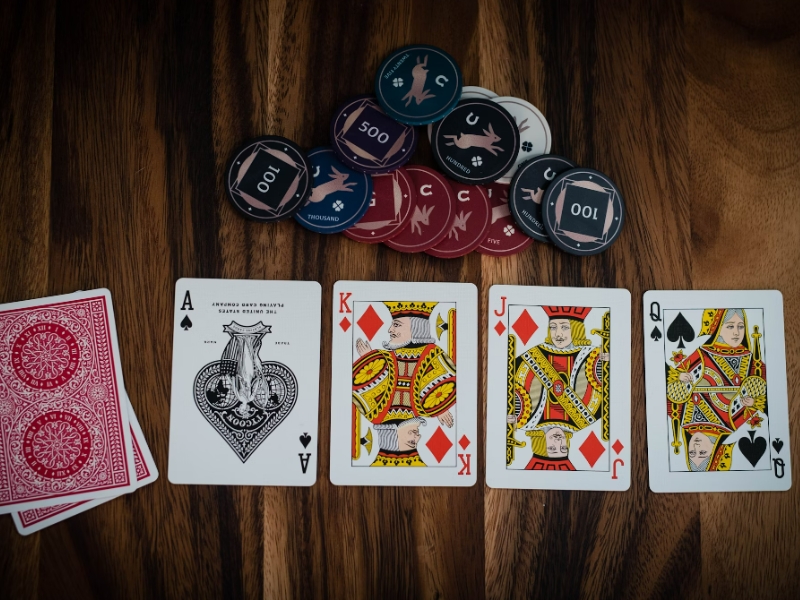
Bluffing Explained
Bluffing in poker is an attempt to trick your opponents into thinking you have a better hand than you do. In theory, a player will raise a hand that they believe has a good chance of winning, bluffing is an attempt by the player to force other players into folding despite potentially having a better hand.
The most important thing about bluffing in poker is understanding its complexities. You can't just go into every game and bluff your way through it, for one thing, your competitors will cotton on pretty quickly and see right through your ruse.
The perfect bluff will be well-timed with the following considerations in mind:
- Have your opponents shown any indication about the strength of their hands?
- Do your opponents have weak or capped ranges?
- How likely is it that an opponent will call?
- Have I balanced my bluffs with value hands?
- Have my previous actions backed up my planned bluff?
- Do my opponents respect my table image?
With these thoughts in mind, learning some poker tips will put you in a good position and the following advice should help you to commit to a bluff and enjoy a good success rate.
Your Table Image
Your bluff is dependent on what the other players around the table think about you and how you play. For example, if the table views you as a player who doesn't like to take risks, raising the bet could be seen as a sign that you have a good hand and encourage others to fold.
Tight aggressive players are more likely to enjoy success with a bluff than loose players who call without raising and whose chip volume fluctuates throughout the night. Opponents might be more likely to call a player like this.
As well as considering your own table image, a good player will also look at the players around the table to see how likely a bluff would be to work. Tight players are less likely to take a risk and may fold, whereas a loose player can hang in and make it more difficult.
The experience around a table will also dictate how a bluff might unfold, with inexperienced players being more unpredictable if they believe they have a chance. More experienced players will typically provide a tougher game but will know when to take risks and when to fold, making a well-timed bluff more likely to succeed.
When to Bluff
Unfortunately, there is no perfect time to bluff in a poker game, and knowing when you have the best chance of success will come with experience and how you have played your game up to that point.
Identifying opportunities will become key to bluffing and your position will also be important. Betting with players behind you is risky and bluffing late can increase pressure on other opponents.
Rasing from blinds can be effective if players limp into the pot. This typically indicates that they aren't overly confident with their hand and a good bluff could cause them to fold.
The following times can be suitable to bluff in certain circumstances:
Paired Board
Low pairs on the board that check to you on the turn or flop can indicate a good opportunity to bluff as it is more likely the remaining cards are in the deck or muck than with an opponent.
Pre-Flop
If you are in a late position with tight players on your left and it folds to you, this can be a good opportunity to indicate you have a strong hand.
Post-Flop
If you are in the last position and the board is relatively innocuous with the highest card being a jack with no pairs, there are two likelihoods. One is that someone else is setting a trap, the other is that they are looking for a way out of the hand and bluffing could force them to fold.
On the Bubble
Players in multi-table tournaments that are near the money bubble will typically tighten to ensure they get in the cash. Shortstacked players will be wary of busting out and those that outstack them are in a good position to force them to fold.
The Semi-Bluff
A semi-bluff is a bluff made with a hand that has the potential to win a game. This is a lower-risk type of bluff because as the game progresses, you have a better chance of finishing with a strong hand.
This strategy can improve the pot and force other players to fold before you have to show your hand, but if you do, you will be in a decent position.
Sizing Bets
Don't let anyone tell you that size doesn't matter when it comes to poker. The size of your bet is a huge part of the psychological warfare involved in poker.
The size of the bet is as important as the timing, raise by too little and you won't place the required pressure on your competitors to force them to fold. Betting too big increases the risk of significant losses.
It is also important to maintain a similar raise throughout the hand. Lowering stakes could indicate weakness to opponents who might have stronger hands.
The Set Up
Setting the groundwork for a bluff can be done by calling a raise or raising after the flop. A raise before the flop is important to help build the pot and it can also help to thin your field of opponents.
After the flop, you will be able to read how others might feel and start building your story. Other players that avoid folding or re-raise could have a good hand and you will have to determine whether you think you can trick them into thinking yours is better.
The Execution
Following through on your bluff can be difficult if another player stays the distance. They might have a stronger hand than you and be confident in it, but you should use your experience and the knowledge you have gained from playing against them to determine whether they will fight to the end or bow under pressure.
One way to gauge their confidence is by considering whether they were an aggressive player during the hand. Have they continually raised or re-raised during the game? If they have, it can be wise to exercise caution rather than continuing.
An important part of bluffing is knowing when to call it a day rather than losing more than you have already put in. Bluffing requires guts and confidence, but that doesn't mean you should ignore warning signs.
However, if the remaining player has only called your bets rather than raised against you, it is not unreasonable to think that showing aggression with your raises could force them to back down.

Conclusion
Poker is a fascinating game that is so much more than just betting on the cards you are dealt, understanding the permutations and chances of your own hand while reading other players requires a lot of concentration and valuable experience.
For many poker players, certain decisions will become second nature over time. Learning the ropes doesn’t have to be costly for beginners with traditional and crypto gambling options available to consumers who want to play the best casino games. Making the most of bonuses, offers, and low-stake games, players can grow in confidence and begin to understand how they can compete in different circumstances.
Bluffing and reading other players differ greatly in online poker and in-person betting, but the theory remains the same. Practicing online or with friends can be a great way to play out your strengths and weaknesses and allow you to progress to more competitive games with confidence.
The experience you gain from less competitive hands will stand you in good stead for the real thing. It will help you to identify potential, improve your timing, become a better reader of the table, and train you how to bet responsibly.








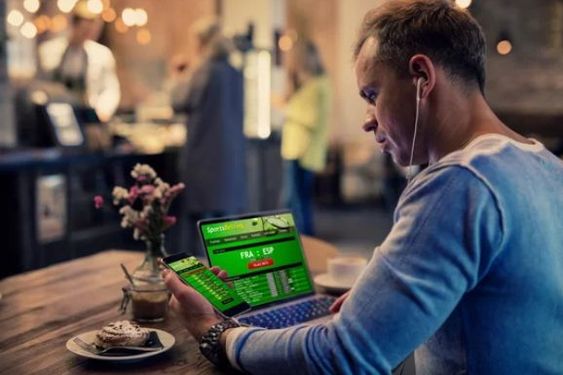
.jpg)
